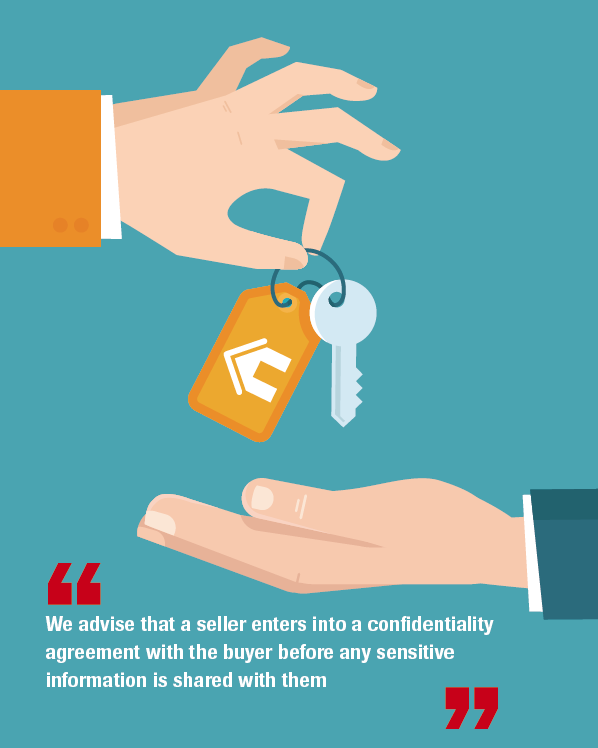Tips for selling your pharmacy
In Running your business
Follow this topic
Bookmark
Record learning outcomes
Are you considering selling your pharmacy? In this article, we answer some common questions to help sellers make an informed decision
I have just agreed a price with a buyer for the sale of my pharmacy. What happens next?
 Most buyers will try to ensure that they are the only horse in the race, and will ask the seller for a commitment not to negotiate with other prospective buyers for a period of time. In return, a seller will often ask the buyer for a deposit of up to 10 per cent of the agreed price. Usually, the parties agree that the deposit can be refunded in certain circumstances (for example if the seller withdraws from the sale without fair reason). Any buyer will also want to undertake due diligence into the pharmacy to confirm that the business conforms to their expectations and any sales information. It will also allow a buyer to understand what is required to operate the business from completion of the sale. A due diligence exercise generally takes the form of questionnaires relating to all aspects of the operation of the pharmacy, together with requests for certain documents. Therefore, we generally advise that a seller makes sure that they enter into a confidentiality agreement with the buyer before any sensitive information is shared with them.
Most buyers will try to ensure that they are the only horse in the race, and will ask the seller for a commitment not to negotiate with other prospective buyers for a period of time. In return, a seller will often ask the buyer for a deposit of up to 10 per cent of the agreed price. Usually, the parties agree that the deposit can be refunded in certain circumstances (for example if the seller withdraws from the sale without fair reason). Any buyer will also want to undertake due diligence into the pharmacy to confirm that the business conforms to their expectations and any sales information. It will also allow a buyer to understand what is required to operate the business from completion of the sale. A due diligence exercise generally takes the form of questionnaires relating to all aspects of the operation of the pharmacy, together with requests for certain documents. Therefore, we generally advise that a seller makes sure that they enter into a confidentiality agreement with the buyer before any sensitive information is shared with them.
When do I need to approach NHS England?
If the pharmacy is sold by way of an asset sale, then both parties must apply for NHS England change of ownership consent. The consent can take time to obtain, so it is generally recommended that the application be made as early as possible. Sellers should ensure they have contractual protection before submitting the application because, once submitted, the buyer will have conduct of the application. If the pharmacy is sold by way of a share sale, such consent will not normally be needed. Final transfer of the NHS contract takes place on the date on which NHS England updates its Pharmaceutical List. It is important to ensure that the purchase completion date coincides with the date on which the Pharmaceutical List is amended €“ otherwise, the buyer may not receive the NHS income accruing from the completion date and the seller will remain responsible for the pharmacy's operation under the terms of the NHS contract.
Will I have any liabilities after the sale completes?
While a due diligence exercise should provide the buyer with a good level of knowledge about the business of the pharmacy, there is no statutory protection for a buyer in relation to any liabilities acquired. Sale contracts will therefore contain a number of contractual statements (so-called €warranties€) as to the state of the business, covering areas such as employees, litigation, accounts accuracy, tax, etc, which provide a buyer with the ability to make a claim against the seller if those statements prove to be incorrect. Sellers will generally be able to negotiate some protection against warranty claims with the buyer. For example, they can agree a limited time period in which warranty claims can be made, a cap on the amount that can be claimed and also disclose any breach of the warranties occurring before the sale contract is signed.
Can I set up another pharmacy business with my sale proceeds?
This is often a point of negotiation between buyers and sellers €“ determining whether or not a pharmacy owner can sell and then set up another pharmacy business in the local area. Buyers will generally not wish to subject their new investment to additional competition and so will often ask sellers to agree to enter into restrictions on having an interest in a competing pharmacy within a defined area for a period of time following the completion of the sale.
- The above is a general overview and we recommend that independent legal advice is sought for your specific concerns.
Samuel Milne is a solicitor and associate in the Healthcare Transactions Team at Charles Russell Speechlys LLP, samuel.milne@crsblaw.com
